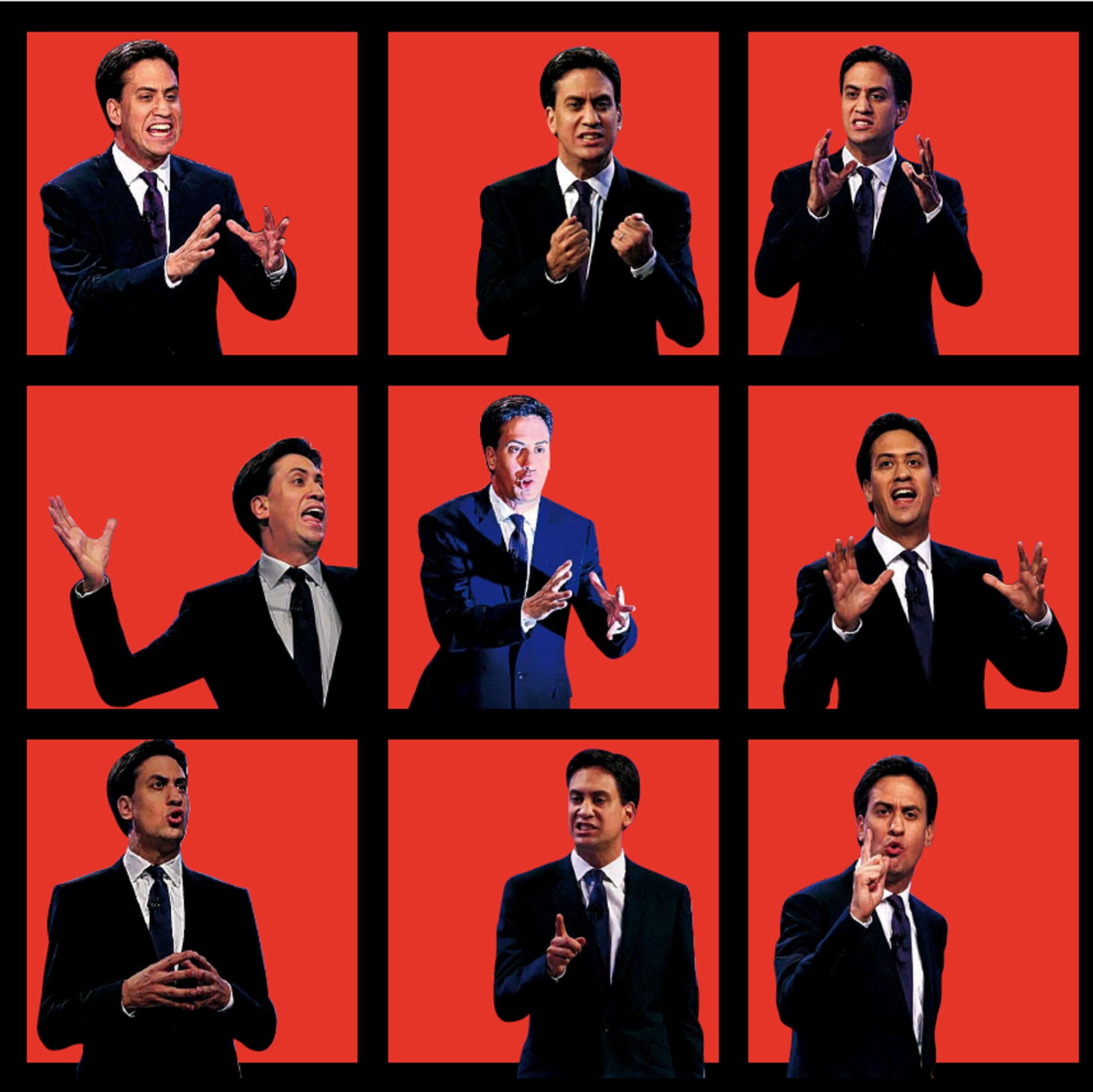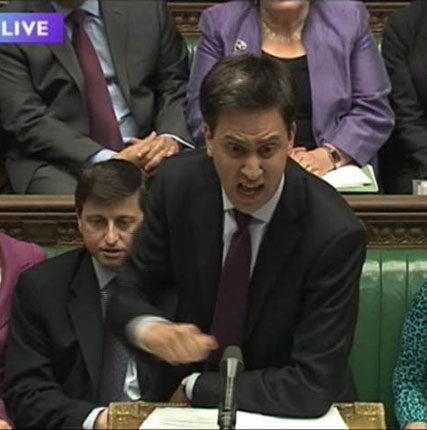PMQs: 50 Shades of Miliband – loud Ed is dead, red Ed is dormant. Long live quiet Ed!
A less doggish approach works well for the Labour leader. Let's hope he sticks with it


Your support helps us to tell the story
From reproductive rights to climate change to Big Tech, The Independent is on the ground when the story is developing. Whether it's investigating the financials of Elon Musk's pro-Trump PAC or producing our latest documentary, 'The A Word', which shines a light on the American women fighting for reproductive rights, we know how important it is to parse out the facts from the messaging.
At such a critical moment in US history, we need reporters on the ground. Your donation allows us to keep sending journalists to speak to both sides of the story.
The Independent is trusted by Americans across the entire political spectrum. And unlike many other quality news outlets, we choose not to lock Americans out of our reporting and analysis with paywalls. We believe quality journalism should be available to everyone, paid for by those who can afford it.
Your support makes all the difference.Ed Miliband’s new quiet style is pleasant. I assumed that, once the Prime Minister and leader of the opposition had paid their respects to Captain Richard Holloway, killed in Afghanistan over Christmas, and to the Labour MP Paul Goggins, whose family gave the name to Mrs Goggins in Postman Pat (Paul’s uncle was a friend of author John Cunliffe), that normal conditions would apply.
But something had changed. If I had been more observant, I would have noticed that Michael Dugher, the Labour noise machine, was not sitting in his usual place on the steps of the gangway next to the opposition front bench. Nor was Sadiq Khan, shadow justice minister and Labour sub-woofer, sitting on the next step up, as he usually is. Khan was sitting on the front bench and Dugher I couldn’t see.
So when the formalities were over - and the touchingly warm tributes to Goggins paid - the Labour war machine was not cranked up, as it usually is, to concert volume. Miliband’s first two questions were asked in exactly the same quiet, sorrowful tone in which he had regretted Goggins’s passing.
With no back-up noise from behind him, Conservative MPs listened to the Labour leader in respectful silence, possibly because they thought they were still paying their respects. Miliband asked about the handling of the floods. Instead of joining the blame culture of the press in accusing David Cameron of personally dismantling flood defences to sell the stone for paving slabs, he asked if the Prime Minister could update the House and then wondered mildly about the possible effects of climate change.
Then the Labour leader stayed in his seat and allowed the Speaker to take some questions from backbenchers, before he stood up again for a second set of questions, about slot machines. Again the tone was quiet, unnaturally subdued, but also, again, non-partisan. Miliband accepted that the 2005 Gambling Act “didn’t go nearly far enough” and offered to work with the Government to improve the legislation. Tory MPs took several seconds to work out that in 2005 the country was groaning under the yoke of an evil Labour government and that Miliband was criticising it. But their hoots of delight and derision lacked conviction and depth because the wall of noise that usually faced them had been taken down.

It was a bit like Berlin in 1989. Or like Christmas in the trenches. We almost expected to see Labour and Tory backbenchers start a game of five-a-side football in the no-man’s land between the two red lines down the middle of the Chamber.
David Cameron, without the provocation of the massed roar of toff-baiters, was as equable as he usually is before the crimson tide rises. He did not adjust completely to the new mood of Bipartisan Reasonableness, snarking that he could detect a pattern in Labour’s mistakes: 24-hour drinking, relaxing the law on gambling and the problems in “banking and elsewhere that we’ve sorted out”.
But the new approach worked well for Miliband. He comes across so much better when his tone is quiet, serious and consensual. One or two Labour MPs had not heard the quiet word in the ear. Emily Thornberry, MP for Islington, was shouting and heckling like it was 2013. On the other side, Matthew Hancock, the junior Business minister, and the Tory whips were sitting on the gangway steps on the Government side and trying to make as much noise as usual. But Hancock kept being caught out, like the loud person at a party when everyone else coincidentally stops talking.
New Year, New Ed. I quite like it. I wonder how long it will last.
Join our commenting forum
Join thought-provoking conversations, follow other Independent readers and see their replies
Comments